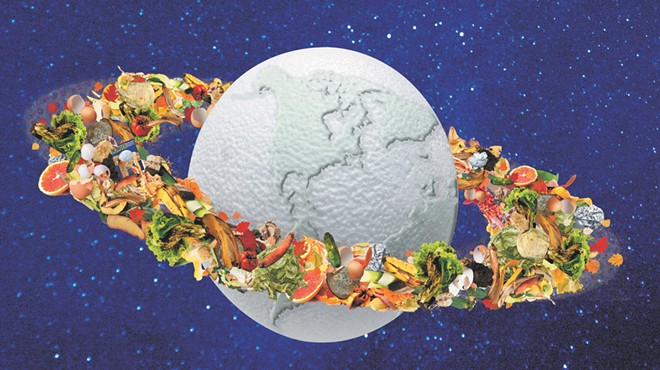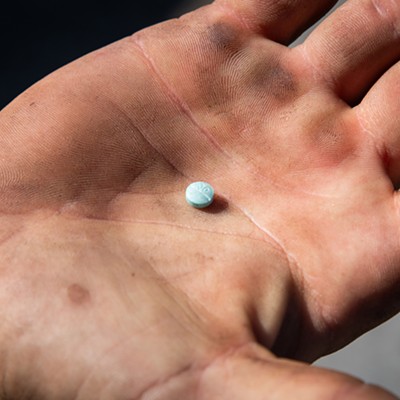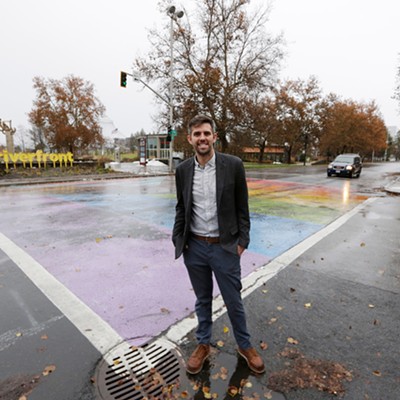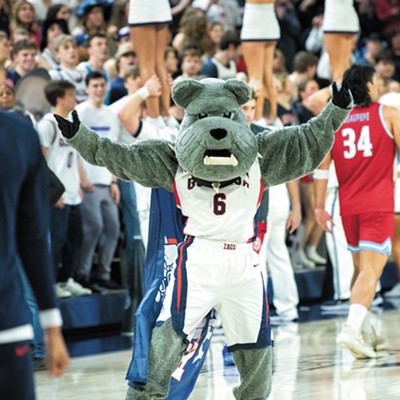
Many of us are familiar with coffee cups and to-go containers made from plastic foam — known casually, albeit incorrectly, as Styrofoam.
The common foam we think of when we hear "Styrofoam" is actually a different material, scientifically referred to as expanded polystyrene, and it's often used to create affordable, lightweight coolers and all sorts of packaging for takeout at restaurants.
Unfortunately, it is also found strewn in our oceans and waterways. Plastic foam takeout containers were the seventh-most common item collected during coastal litter cleanups globally in 2022, according to the Ocean Conservancy, a nonprofit environmental group that advocates for healthy ocean ecosystems.
To address the growing pollution, Washington and other communities across the U.S. have begun banning the material.
Starting in June 2023, Washington banned plastic foam packing peanuts and loose packing material.
This year, the more noticeable changes will take effect, with a ban on the sale and distribution of plastic foam coolers and foodware — think cups, bowls, plates, trays and clamshell containers. — set to start on June 1.
Exemptions to the ban include trays for specific raw foods such as meat, containers for shipping medications, biological materials and medical devices, and containers for shipping perishable goods from wholesale or retail businesses.
WHY IT'S NECESSARY
Plastic foam is quick to break down into smaller pieces, allowing it to travel easily through air and water. Pollution from plastics eventually breaks into microplastics, which can carry toxic chemicals and are now found throughout our environment.Microplastics are even making their way into humans.
Anja Brandon, the associate director of U.S. plastics policy at Ocean Conservancy, describes Eastern Washington as a "kind of harvest bowl," where a significant amount of food is grown, which makes the prevalence of microplastics in our environment concerning.
"Microplastics that end up in our soil systems can really impact crops and plant growth," Brandon says. "The toxics they carry with them can be taken up by the plants."
Due to the ubiquity of plastic foam, efforts to ban it are spreading.
Several states such as Maryland, Vermont and Colorado have also banned the material. And the new Farewell to Foam Act, which was introduced in Congress by Oregon's senators late last year, would create a plastic foam ban similar to Washington's at the national level.
HOW IT WILL BE ENFORCED
Enforcement guidelines are still being worked out, but Lauren DiRe, a waste reduction and recycling specialist from the state Department of Ecology, assumes it will be similar to the state's handling of the single-use plastic bag ban.The agency will likely send letters to each business that gets reported for violating the ban, with an emphasis on education.
"There are so many opportunities for us to educate the business on what the law is and generally that is why businesses aren't in compliance, because they're not in the know," DiRe says.
Sholina Pearson, general manager at Umi Kitchen and Sushi Bar, says that she knows about the ban, but didn't "know when it's actually being implemented since [plastic foam] is still being sold in restaurant stores like Cash & Carry."
Pearson says that Umi uses plastic foam due to its affordability, and will likely turn to other plastics for to-go and leftover items.
Once the ban goes into effect, businesses are not allowed to sell or distribute plastic foam materials. Unlike with the plastic bag ban, they won't be allowed to distribute any excess stock they already have.
Between now and then, DiRe recommends that businesses use what they have, sell any excess to other businesses who don't have backstock, sell to businesses out of state (Idaho does not have a plastic foam ban, and Oregon's ban does not go into effect until 2025), or donate the containers to local shelters that offer food service.
But after June 1, what should businesses use instead?
According to Brandon with Ocean Conservancy, the ideal situation is to end up with a system of reusable, refillable or returnable packaging. However, this is not an overnight solution, and in the interim, emphasis should be placed on materials that are easily recyclable, since plastic foam is not. For instance, New York implemented a similar ban in 2022 and compiled a catalog of alternatives including containers made from bamboo, paper fiber and foil, among other materials. ♦
More information on the ban is available at ecology.wa.gov/epsban. Ecology also encourages anyone who has questions, ideas or wants to help spread the word to contact [email protected].





























